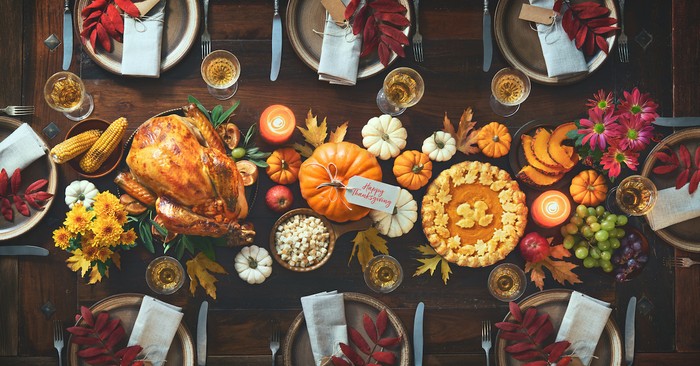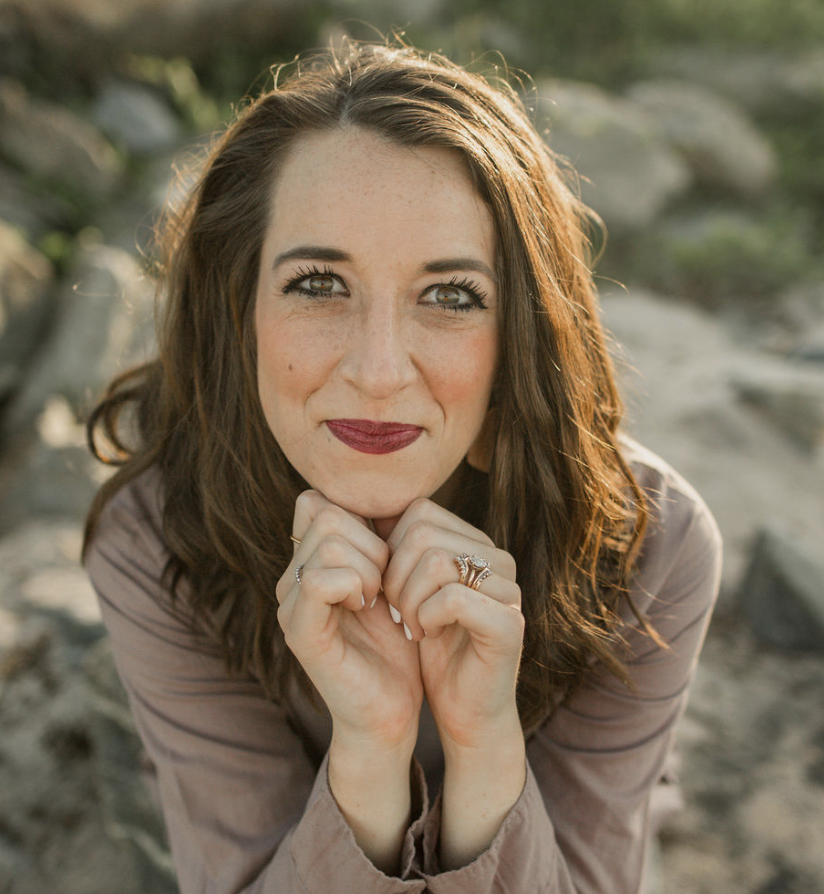
I’ve never felt more human, more at peace in flawed skin, than now, understanding that we are graced with the chance to constantly heal, never quite reaching an ultimate “fix."
Fall welcomes a colorful canvas of oranges, yellows, and reds gracing the leaves and neighborhood porches. It whispers of beauty, even though it knows winter is right around the corner. Nature chooses to be grateful in its current season. Rather than dreading an unavoidable frost, fall decides to showcase God’s splendor.
As Thanksgiving approaches, I think we should imitate nature. Yes, life is hard, and winter brings brutal weather while the holiday season suffocates bank accounts. For many, celebrations feel somber because of an empty chair. So how can we enjoy this season of beauty and thanksgiving when we don’t feel like being thankful? When we have a hard time counting the good things we are blessed with?
I don’t have all of the answers, but I can let you in on what I’ve learned to do: thank God for the terrible things.
Ugh, not the answer you wanted to hear; I know. However, walk with me as I delve into my journey of thanksgiving amid seasons of bleak, brutal pain (and discover God in it all).
The three terrible things I’m most thankful for begin with:
1. My Mental Disorder
I have Obsessive-Compulsive Disorder. The neurotransmitters in my brain are supposed to send serotonin throughout my body, allowing me to more easily rationalize circumstances and experience joy. However, most of my neurotransmitters are blocked, which keeps a healthy amount of serotonin from being distributed throughout my body.
As a result, I easily obsess over what-if scenarios. Because I don’t have the serotonin to rationalize and process everyday circumstances, my brain is a slave to living in fight-or-flight mode. After all, if we believe we are in a place of irrational danger and rational thoughts don't calm us down, our adrenal glands tell our bodies to panic. This is how it tries to keep us safe.
But I am safe… the serotonin just can’t get through my body to let me know. Thus, I obsess over all sorts of thoughts and compulsively do things to counteract them or prove them wrong.
About five years ago, the World Health Organization placed OCD in the top 10 most debilitating disorders—it’s ranked among Diabetes and pulmonary diseases. It quite literally cripples your ability to function, let alone enjoy life.
I lived with undiagnosed OCD for twenty years; it first reared its ugly head when I was about four, but once adulthood hit and reality was much less kind, OCD discovered a newfound vengeance, a way to remain unhidden. I swallowed my pride and went to therapy, where I was given the skills (and pills) needed to work through the diagnosis.
Unfortunately, there is no cure for OCD, but for that, I'm grateful.
I am thankful for a thorn in the side that finds a daily miracle in a white pill I swallow each morning, wrecking an even bigger dose of pride inside my soul. Aside from OCD, I’m not sure I would have ever plunged completely into the world of vulnerability, denying perfection and letting the world (especially my Christian circle) know that everything isn’t always okay in my life.
OCD brought me to my knees in the sort of way that was crippling yet holy. I found God amid an incurable, diabolical disorder. I found that God doesn’t always fix my hard times, but he chooses to sit with me, hurt alongside me, as I discover healing in the ordinary things—laughing with my husband who has stayed by my side through counseling, smiling at a sunrise when I discover a new shade of pink it boasts, sharing with others that my world isn’t always bright and having them say, “I thought I was the only one. Now I know I’m not alone….”
I’ve never felt more human, more at peace in flawed skin, than now, understanding that we are graced with the chance to constantly heal, never quite reaching an ultimate “fix." Nonetheless, we learn to walk hand-in-hand with the Great Physician each day.
2. Broken Relationships
This month marks five years that I have mourned the loss of a dear friend. We knew each other in elementary school, become close in high school, and were inseparable in college—weekly Waffle House hangouts, me saying yes to being her bridesmaid, her driving hours to see movie premieres with me. Our loyalty to one another was never questioned; it was as sure and steady as my devotion to pumpkin spice lattes (with white foam and caramel drizzle).
But, like the seasons, time changes us; it pushes us into new life phases, even if we haven’t quite grappled with the past. Often, time leaves us wary of the future. And I think that’s where she and I slowly drifted apart. We were growing old enough to see the long-term impact of trauma, broken homes, and swelling responsibilities. We each had our own pasts to deal with, and we chose to cope in different ways; our mindsets shifted—but not in the same direction.
How we viewed the world became so different that we no longer knew each other. And one day, we woke up, and it was winter in our friendship. Nothing was growing, bright colors were nowhere to be found, and bitterness was far too easy to find.
She and I don’t speak anymore. And every ounce of my soul misses her.
But this broken relationship has taught me to appreciate the healthy relationships I have. It has taught me that weaving my life into another human being’s isn’t a one-way street. It’s not “I’ll text her if she texts me first.” It has more girth, more depth than that. It requires more selflessness. It requires a willingness to endure the winter seasons together, not being offended if you can’t talk every day or feel you’re putting in more of the grunt work from time to time.
This broken friendship taught me perseverance, and as scripture says, perseverance births hope (Romans 5:3-5).
Likewise, I can say the same about romantic relationships. I dated a man on and off for almost three years, begging God to make him the one. No matter how hard I tried to make this man love me, though, he didn’t. And he couldn’t. Not the way my husband does.
In God's time and way—in the middle of my heartache, angry questions, and lonely seasons—I found a man who would care for me like the other never could.
Such an enduring love is worth the hurt. For that, I'm thankful.
3. Grief
In 2015, my grandfather passed away just four days after Thanksgiving. It wasn’t a festive season then; it was somber, too quiet, gray, lifeless. Our entire family was mourning but in different ways. We weren’t sure how to check in on or approach one another. We didn’t know when it was finally acceptable to laugh at something or mention my grandfather in the past tense.
We were tiptoeing on winter’s ice long before the temperatures fell below fifty degrees.
We were grieving—and grieving is messy.
However, I have discovered that grief is allowed to come alongside healing; the two can walk together hand-in-hand. The place I find God the most, hear him the loudest, is often at my grandfather’s headstone. I go to visit with my Pepa and end up talking with God.
I grieve death but thank God for life on the other side of a graveside. And if not for loss, I don’t think I would understand the beauty of what I gain—even after heart-aching, mind-numbing pain.
Perhaps I’m wrong, but I don’t think we are ever called to “get over” losing someone or something valuable. Rather, I believe grief calls us to appreciate what is present and consistently pursue God as we discover what’s ahead.
I’m thankful for grief. Truly.
I’m unsure where you sit this Thanksgiving season—if the leaves are beautiful or your life season is ugly. I can’t offer answers, and I won’t pretend God operates within boundaries that I understand (or even like) sometimes.
But what I can tell you is that I have found beauty from ashes; I’ve discovered that God truly makes all things good in his own wild way. And if both fall and winter are coupled in his gracious hands, I know I can endure until springtime.
May you find the happy in Happy Thanksgiving.
Photo Credit: ©GettyImages/AlexRaths










